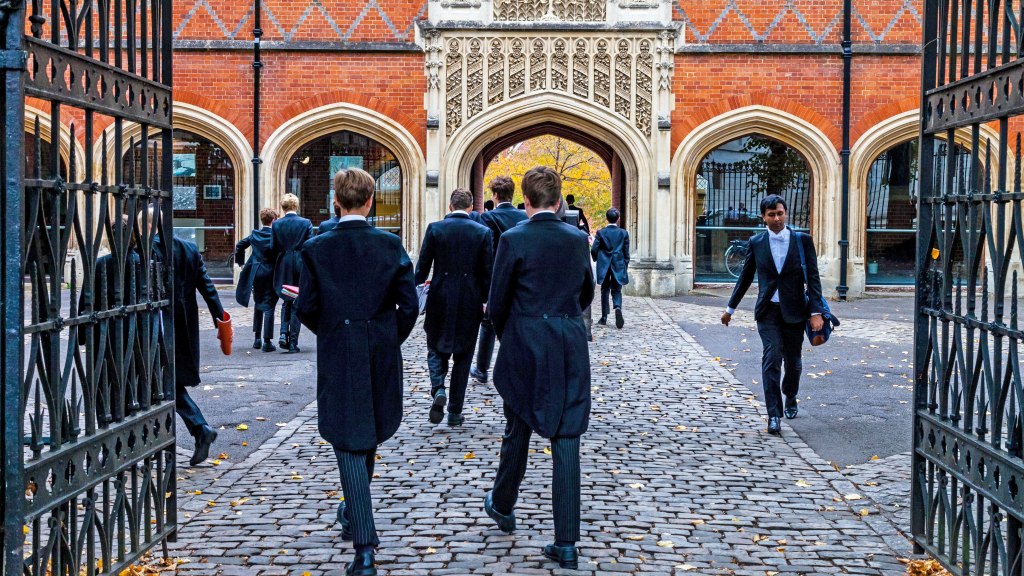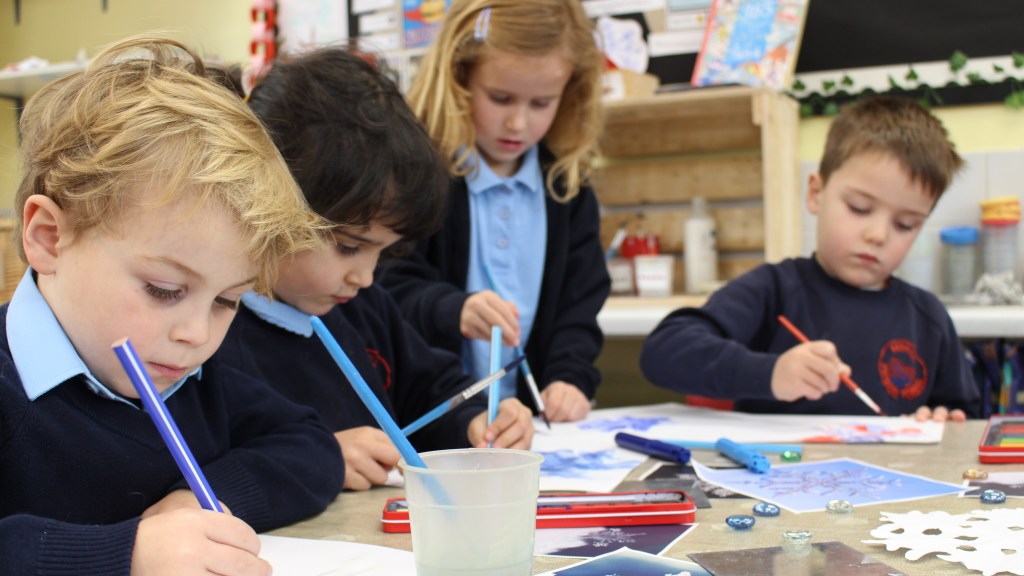Rising School Fees Push Families with £100k Income Below Minimum Wage
A recent report suggests that families earning a household income of £100,000 face financial challenges that can leave them with less disposable income than those earning minimum wage when enrolling two children in private schools.
The analysis conducted by financial planning firm Saltus indicates that the implementation of VAT on school fees significantly impacts even affluent families, limiting their available income.
To maintain a standard of living similar to the average UK earnings while covering the costs of day school for two children, a household would require a gross income approaching £150,000, according to Saltus. Families with an income of £100,000 are projected to be in a worse situation than a couple each earning minimum wage without private school expenses.
The Independent Schools Council’s annual census reported that the average yearly expense for sending a child to a day school is £18,064, based on a membership survey from January of the previous year. Saltus highlighted that the average day school fee is around £20,959 per child when considering boarding schools.
Including the 20% VAT results in fees climbing to approximately £25,151. However, surveys indicate that schools have typically transferred about 14% of VAT costs rather than the complete 20%.
Families with two children enrolled at average fee levels might incur total annual costs of £50,302. To manage these expenses, a household would need a gross income of £68,526. To meet the UK’s median income of £37,430 for each person while covering fees, a couple’s combined income would need to reach £143,386 annually.
After accounting for school costs, a couple with a £100,000 salary would find themselves with less disposable income than a couple earning the national minimum wage of £23,809 for a standard 40-hour workweek.
Saltus noted that a survey revealed various responses from parents since VAT was introduced, including withdrawing children from private institutions, seeking more affordable schools, relying on family support for tuition, cancelling holidays, or extending mortgage terms.
The Independent Schools Council, among others, has launched a judicial review challenging the government’s VAT on school fees, claiming it is discriminatory and a violation of human rights. This case was heard in early April, and a decision is awaited.
Mike Stimpson, a partner at Saltus, commented, “Historically, private education was accessible for professionals such as doctors and lawyers—individuals who worked long hours and earned what was perceived as a stable income. However, with the addition of VAT to school fees, even those in the six-figure salary bracket are faced with daunting financial choices.”
Stimpson continued, “These families have carefully budgeted and prioritized education, yet now find that a £100,000 income is insufficient to secure the educational opportunities they desire for their children.”
John Williams, a 36-year-old freelance translator with an annual income of £95,000, shared his experience with two children in private education. Prior to VAT changes, his daughter’s fees were £19,500 per year, and his son’s were £16,500, totaling £36,000. With the addition of VAT, that cost has increased to £41,500, significantly impacting his post-tax income.
Williams expressed, “A substantial portion of my £95,000 salary now goes directly to education expenses. We’ve tightened our budget considerably—foregoing vacations and cutting costs wherever possible—and I am likely to transition my daughter to a state school for sixth form. I do recognize the debate regarding the charitable status of private schools; while some do offer bursaries, many do not operate as true charities, making the tax exemption somewhat tenuous.”
A Treasury spokesperson stated, “We do not agree with these calculations, which imply that the VAT increase will fully be passed on. Removing tax advantages for private schools is projected to generate £1.8 billion annually by 2029/30, which will help provide 6,500 new teachers and enhance school standards, ultimately supporting the 94 percent of children in state schools to succeed and flourish.”




Post Comment